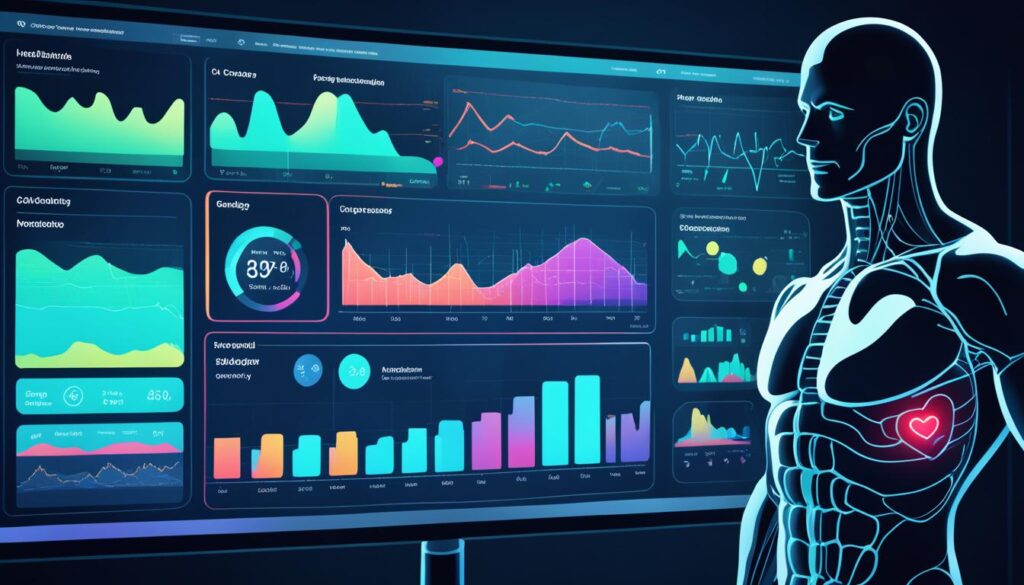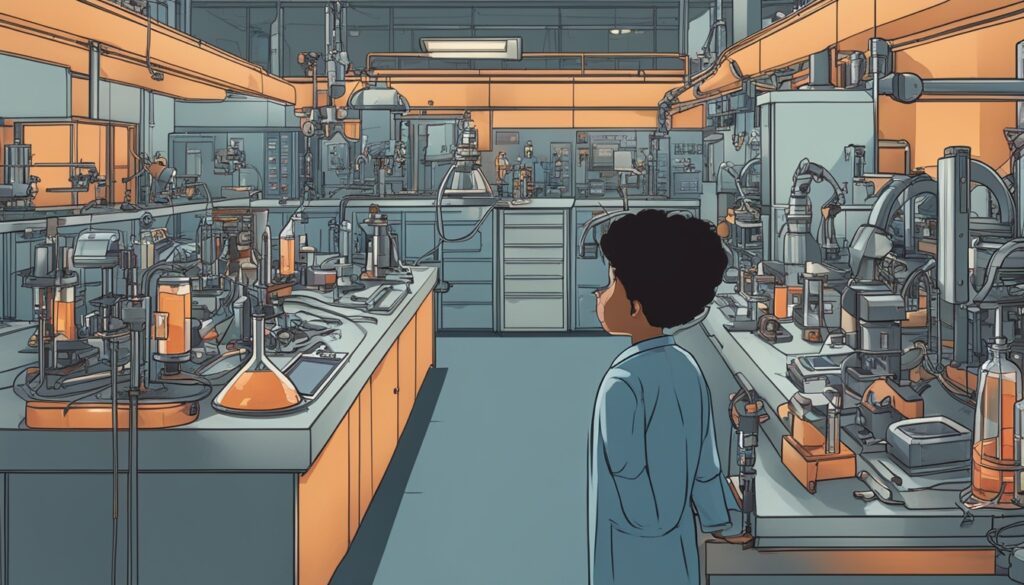Technology is moving faster than ever, making us think about using artificial intelligence (AI) to live longer or even not die at all. Futurists, scientists, and many others are excited about this idea. They believe that as we progress, we’ll see huge leaps in technology, especially in the 21st century.
Big names like Elon Musk and Ray Kurzweil talk about using AI to fight aging. They think the future will be very different from today. With technology growing so fast, we wonder: What role can AI play in shaping the future of human longevity?
Introduction to AI in Healthcare and Longevity
Artificial intelligence (AI) is changing healthcare and longevity research in big ways. It can mimic biological functions to find new drugs and treatments. This could help us live longer.
Experts like Ray Kurzweil say AI can test new treatments safely without using humans. This could speed up finding ways to live longer and healthier.
AI in healthcare is already being used. It looks at genetic data to find new drugs and predict diseases. This helps doctors act fast to stop health problems before they start.
AI can also make treatments more personal and effective. This makes healthcare better for everyone.
In the future, AI and human lifespan could change a lot. We might live longer and longer, making work optional. This could lead to a new economy focused on automation and AI.
As AI in longevity research grows, healthcare will change a lot. The old idea of electronic medical records might not be needed anymore. Instead, AI will help make healthcare more personal and effective.
Current Capabilities of AI in Predicting Health Issues
The healthcare industry is changing fast, thanks to artificial intelligence (AI). AI is now a big part of predicting and catching diseases early. This is changing how we prevent health problems.
Examples of AI in Early Disease Detection
AI is really good at looking through big datasets to find patterns that help predict health issues. AI disease prediction and ai early disease detection tools are key in spotting conditions like cancer, Alzheimer’s, and heart diseases early.
AI can look at medical images and other data with great accuracy. It can spot early signs of diseases before they’re obvious. This predictive analytics in healthcare lets doctors act sooner, which can make patients better and ease the load on healthcare.
AI health monitoring tools, like wearable devices and apps, let people take charge of their health. They use AI to keep track of health data and warn about possible issues.
As ai disease prediction and ai early disease detection get better, we’ll see more AI tools that change preventive healthcare. This will lead to better health for people and communities.

AI Technologies Used in Preventive Healthcare
AI is changing the game in preventive healthcare. It uses advanced machine learning and predictive analytics to spot health risks early. This helps doctors prevent serious health problems before they start.
Machine Learning and Predictive Analytics
Machine learning looks through huge amounts of health data to find patterns. It can spot risks that might lead to health issues later. This lets doctors create plans that fit each person’s health needs, keeping them healthy.
Predictive analytics uses AI to guess the chances of health problems. It helps doctors act before problems happen, making care more proactive. The market for AI in healthcare is expected to hit USD 6.6 billion by 2021, showing how big a deal these technologies are.
Wearable Devices and Health Monitoring Apps
AI and wearable devices are making it easier to catch diseases early. These gadgets track your health signs and activity, giving a full picture of your health. AI can spot early signs of health problems, helping doctors act fast.
More people are using these devices as chronic diseases become more common. AI is changing preventive healthcare for the better. It uses machine learning and health monitoring to help people take charge of their health, leading to a healthier future.

Timeline for AI Advancements in Health Prediction
Current Research and Developments
Experts say AI in healthcare will move faster in the next few years. They’re working hard to make AI better at predicting and preventing diseases. This means improving AI models, using more wearable devices and biomarkers, and exploring new areas like digital twin simulations of the human body.
Future Projections and Expert Opinions
Ray Kurzweil and others think AI progress will be huge, maybe even changing how long we live. They believe AI could lead to longer lives or even lives without end. AI could solve big healthcare problems and make people healthier and happier worldwide.
